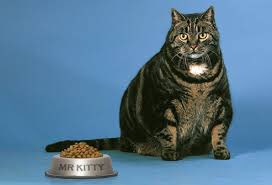10+ Are Cats Considered Omnivores Image
.And what's in that can or bag of cat food, anyway? Is it because cats don't eat vegetables?

Cats are carnivores that cannot digest or obtain nutrients from plant material.
Arguably, the domestication of the cat can be considered incomplete and in flux, because abandoned cats and feral populations can quickly adapt to a wildcat lifestyle.19,20 the cat has behavioral and social attributes recalcitrant to domestication, such as being highly agile and a mainly solitary species. Their ideal diet is a high protein meat diet, and the small amounts of other nutrients they require are theoretically provided by the diet that their prey has eaten. Based on their digestive tract adaptations, i believe that dogs are scavenger carnivores, while cats are true carnivores. Is it because cats don't eat vegetables? Most hypocarnivorous animals are considered omnivores. Obtaining energy and nutrients from plant and animal matter. Ad by whole tomato software. Arguably, the domestication of the cat can be considered incomplete and in flux, because abandoned cats and feral populations can quickly adapt to a wildcat lifestyle.19,20 the cat has behavioral and social attributes recalcitrant to domestication, such as being highly agile and a mainly solitary species. There is no doubt that all cats are considered strict carnivores (meat eaters). An omnivore is an animal whose species gets its energy and nutrients from a diet made up foods that include plants, animals, algae, fungi and bacteria. For an animal to be considered an omnivore, it must have a regular nature in its daily diet as the main source of food an animal and a plant. So they can eat all kinds of berries, nuts, acorns, fruits, and small animals: And what's in that can or bag of cat food, anyway? Omnivores and scavengers feed on a wide variety of foods and are species that eat both plants and animals as their primary food source. This has been studied extensively by countless cat owners throughout the globe, and while we can't call it an official study this theory is considered false because, even if all of this is true, the bad taste of a certain critter is no reason for red alert. Instead, omnivores require behavioural and anatomical flexibility to locate, process and utilize their wide range of food. Why are dogs considered omnivores? I assume that my cat does not produce necessary enzymes that can break down cellulose and like fructose and stuff, but i can't seem to find an regardless of whether they are carnivores, omnivores, or herbivores, all mammals can digest glucose, fructose, sucrose, and even more complex carbs like. Does this mean they are carnivores or omnivores? An omnivore animal is one that eats both plants and animals, which may include eggs, insects, fungi, meat, and algae. Examples include cats, eagles, salmon, sharks and owls. They meet their nutritional needs by consuming other animals and have a higher protein requirement than many other mammals. Are humans carnivores or herbivores? Domesticated dogs (canis familiaris when they are considered to be a distinct species or canis lupus familiaris when they are classified as a. Examples of such omnivorous animals include black bears and us humans. Cats are carnivores that cannot digest or obtain nutrients from plant material. The cat cannot sustain its life unless it consumes meat in some form. Considering what we've learned, let's circle back to the original question: Raccoons are considered one of the primary carriers of the rabies virus in the united states, though only one person has ever died from a raccoon to human transmission of the disease, according to the centers for disease control and prevention. Many omnivores change their eating habits during their life cycle. Cats aren't omnivores—they're obligate carnivores and can thrive on nothing but muscle meat, organs, bones, and other parts of their prey.